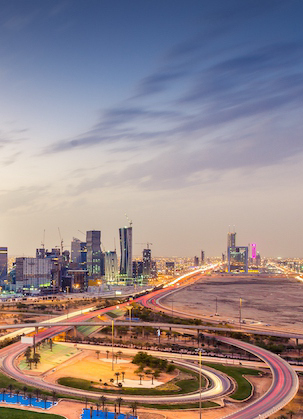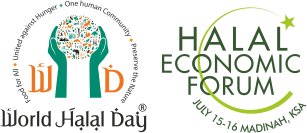Status of KSA in Halal Economy
Saudi Arabia's economic freedom score is 58.3, making its economy the 98th freest in the 2023 Index. Its score is 2.8 points higher than last year. Saudi Arabia is ranked 8th out of 14 countries in the Middle East.

Saudi Arabia is the 4th biggest Halal economy and the 7th largest Halal food economy in the world. But, it finds no place in the top Halal manufacturing countries list. Apart from this, Halal certified products can be exported to other OIC and Non OIC countries and this will help the Kingdom of Saudi Arabia, occupy a crucial position in the World Halal Map.
KSA depicts the 10th largest Muslim population in the world and obviously a good market for Halal products. KSA is one of the biggest Halal food economy in the world. But KSA stands nowhere, in the top 10 food producers list. This shows that most of the food products, unprocessed or processed is imported into the Country.
KSA is the biggest holy travel hub for the World Muslim Population. In spite of this, KSA occupies only 16th position in the World Halal Travel economy list. Halal Food economy and Halal Travel economy are two thrust areas, where KSA can concentrate and there is ample scope for the up gradation of KSA’s overall economy and Halal economy.
Saudi Arabia’s economic freedom score is 58.3, making its economy the 98th freest in the 2023 Index. Its score is 2.8 points higher than last year. Saudi Arabia is ranked 8th out of 14 countries in the Middle East
Opportunities
Looking on the positive side, there is an ample opportunity for the “Made in KSA” drive, since supplies to the domestic market itself, will give a major thrust, cutting out the import expenditures. Apart from this, Halal certified products can be exported to other OIC and non OIC countries and this will help Kingdom of Saudi Arabia, occupy a crucial position in the World Halal Map.
Based on the above said facts, there is a huge potential for KSA to
become a powerful layer at least in the processed food and Halal meat industry sector, which constitutes 52.2% of the World Halal food economy.
KSA can make some inroads into the vegetable products sector as well, making an efficient utilization of its available agricultural resources, the dates sector being the primary one.
- The creation of awareness should be related to farming, manufacturing technologies, standardization and export opportunities.
- Global Halal Food market is USD 1500 Bn
- Getable products constitute 47.8% of the global Halal food economies.
- Processed food products constitute 33.3% of the global Halal food economies.
- Halal meat industry constitutes 18.9% of the Global Economies.

There is a gap in between the current status and the future prospects, which needs to be bridged. The most important requirement today is to acquire awareness about
- Good Agricultural Practices
- Good Manufacturing Practices
- International standards requirements for agricultural products and processed foods
- The complete Knowledge of Halal
- Global Halal Food Economy
- Domestic & Export demand for Halal Products
- Recognition of Halal as an export standard
- Recognition of Halal as a platform to drive your business growth
- Knowledge of Halal Standards and Compliance requirements
